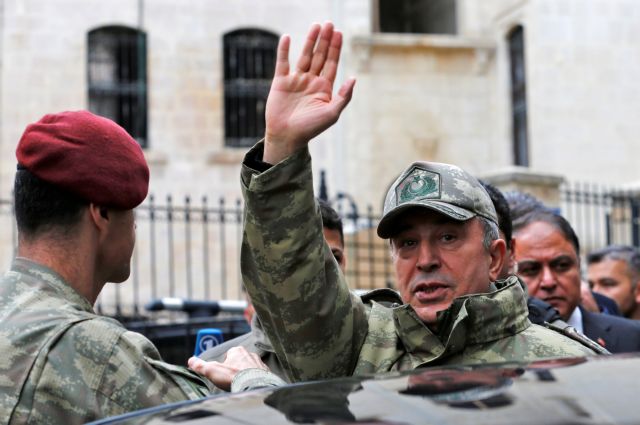The last days of the year have been marked by tensions and nervousness in Greek-Turkish relations.
Turkish provocations raise concerns as they have exceeded all limits, as is evidenced by the sorties of Turkish warplanes over populated parts of Greece, which directly dispute Greek sovereignty over specific parts of the Aegean.
This can be explained to some extent. Recep Tayyip Erdogan’s Turkey is not at its best. The imperial designs of the Turkish President are clearly not panning out.
Whereas he expected that he could revive the Ottoman Empire, check oil-rich zones of the Middle East, control the transport of natural gas toward Europe, expand his zones of influence in the Balkans, and represent the Islamic world, he is instead now threatened with marginalisation and isolation.
At the momemt Turkey is tending to lose its cosmopolitan element and turn into a peculiar Muslim country, a more populous Algeria as an experienced foreign diplomat recently noted.
The links to the West have been limited, relations with the US are shaken, alliances in the broader region are difficult or non-existent, and the dealings with Russia that are designed to offset all that seem to complicate Ankara’s situation and not bolster it.
It is no coincidence that US diplomats view Turkey as “a minority of one”.
It is indeed true that the Americans do not want to completely shut the door on Turkey, but they comprehend Ankara’s equivocations and overtures to the North.
They view Turkey as an unstable ally and are thus transferring strategic weight and focus to Greece, expanding the areas of military and economic cooperation.
According to international diplomatic sources, the anxieties expressed over the last days are rooted is Ankara’s inability to stop the Greece-Cyprus-Israel collaboration or to impede the designs of international politics on the biggest underwater natural gas pipeline in the world, known as East Med.
It begins in Israel and moves on to Cyprus, Crete, the Western Peloponnese, Epirus, and via the Adriatic it will transport natural gas to Italy and the rest of Europe.
Everyone can easily understand the strategic and economic significance of this pipeline. If the estimates of hydrocarbons deposits in the Southeastern Μeditteranean are confirmed, that will create the conditions for Europe to end its dependence on Russia. Turkey, which imagined itself rich and great, will fall into a lesser position.
With the time to sign the related political agreement fast approaching – possibly in February, 2019 – Turkey is acting out all its nervousness and aggressiveness toward Greece.
The question is how Greece will deal with all this. The high-pitched rhetoric of the defence minister has become commonplace and is fairly frequent.It makes no impression on anyone, and is due to the political situation in which he finds himself.
The statement by the Chairman of thhe joint chiefs of staff, Admiral Evangelos Apostolakis [who said that the Greek military will raze any Greek rock islet Turkish troops may land on], is unusual. It may have been prompted by information that there were preparations by Ankara of a possible hot incident. If so, it would be justified.
Nevertheless, in such situations one responds with actions and not with rhetoric. The Greek side has many reasons not to follow Ankara’s verbal provocations.
On the contrary, it has a duty to methodically and inconspicuously build strong alliances and to shape the conditions that will act to deter any prospective military clash.




